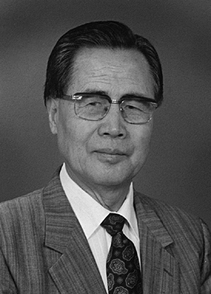 The other day I had a great conversation with someone I met a few years but with whom I am just recently becoming reacquainted. As we sat there telling stories, I mentioned how I thought context was important for stories because it helps whoever you are talking to understand the whole picture. She agreed and told me that thinking that way meant that I was a painter. I wasn’t quite sure what she meant so she went on to tell me that there seemed to be two types of people: painters and pointers. I listened as she continued describing the differences between these two types of people and how they both share and process information. Painters enjoy context. They share context and include many details in their stories and in the way that they communicate information. They want to paint a big picture so that their hearer has a richer experience and a fuller understanding of what they are trying to communicate. Pointers, on the other hand, just like the facts. They’ll give you the bullet point list of the most important information and appreciate the same. They prefer to get straight to the point and to leave out any frivolous details that don’t support the main point of the conversation. She described a pointer that she knew that would be frustrated when she “painted a picture” rather than just providing the points.  It got me thinking about how we communicate. I’ve written about this before because it is something that I think is important. Our ability or inability to communicate has a huge impact on our ability to live together in community. So many of our problems seem to stem from an inability to both hear and be heard. We don’t recognize the differences in the ways people communicate and assume that their preferred method of communication is not only the way that everyone else communicates but also the way they should communicate. This all leads me to reaffirm the importance of communication. We all need to continually work on making clear communication a priority. This isn’t simply working on our ability to speak clearly or provide a good argument, but also learning how to listen, process, and understand what other people are saying. I want to add to that the importance of understanding how you communicate and present information versus the ways that other people communicate and present information. Frequently, I believe, our conflicts stems from our expectation that everyone else should communicate like we do. If we’re able to realize that there are differences in communication styles and adapt, both as speakers and as hearers, I think that we could reduce our conflict and we might actually understand what motivates other people to make their decisions and choices.
0 Comments
 Dr. Won Yong Ji Today on campus we had a memorial service for a retired professor who died on December 31st. He had a stroke in 2007 from which he had never fully recovered so I never had him for class. Dr. Won Yong Ji came to America from what is now North Korea. He found Christianity in a place (Korea) where it was nearly unknown and then found the Lutheran church. If that wasn't remarkable enough, he went on to become a humble giant in the church. He brought what he learned back to Korea and helped establish the Lutheran Church of Korea and a Lutheran Seminary. He didn't stop there, he also translated a number of volumes of Luther's Works into Korean as well as the entire Book of Concord. He did all of this while traveling between Korea and the United States, teaching, speaking, and writing in both places. From all I've gathered, he was quite a remarkable person. Here's the biography that was printed in the service folder today: Won Yong Ji was born in 1924 in a small remote mountain village known as Ga-Rae-Gol in what is now North Korea near the Manchurian border. "His grandmother and parents were well-disciplined people under the influence of Confucian teachings" in a region that was also influenced by Buddhism. Christianity was almost unknown to his village. Later his family moved to a larger town named Chaeryung. At age 16 Won Yong "by chance found a book on The Great Work of Martin Luther." At age 17 he was baptized at a Presbyterian church in Chaeryung. In 1944 the Japanese army drafted him into a "Searching Air Unit" to provide support for anti-aircraft positions around Tokyo. He returned to Korea in 1945, but fled south to Seoul in 1946 after Russia began occupying North Korea. While in Seoul he enrolled at Han-Kook Theological College and Seminary. Befriended by US airmen at Kimpo Air Base, he was given a scholarship to come to America to study. While sailing across the Pacific, a Lutheran serviceman cabled his mother to meet Won Yong's ship. She introduced him to her Lutheran pastor in Olympia, WA in April 1948. He studied in San Jose, CA until he enrolled at Concordia Seminary in 1950. After graduating with a B.A. and B.D. In 1952, he studied education and languages at Valparaiso University for one year. He returned to Concordia Seminary in 1953 and completed his STM, studied in Heidelberg in 1955-56, then completed his Th.D. at Concordia Seminary in 1957. He was then called by the LCMS as a missionary to Korea with a one year leave of absence to serve as assistant pastor at Jehovah Lutheran Church in St. Paul, MN. He was a missionary to Korea from 1958-68. "Dr. Ji was very involved in the initial establishment of Lutheranism in his native land. He was the founder of the theological training program that has now become Luther University & Seminary" (LTU's Newsletter, 2007). |
AuthorMy name is Tom. I'm fascinated by the ways that people, ideas, current events and theology interact with each other. Archives
March 2021
Categories
All
|
 RSS Feed
RSS Feed
